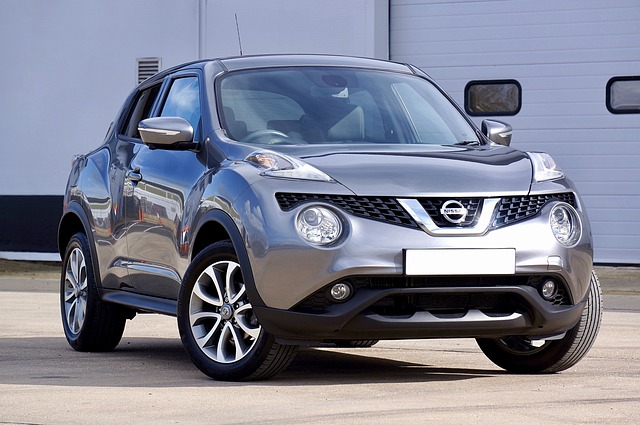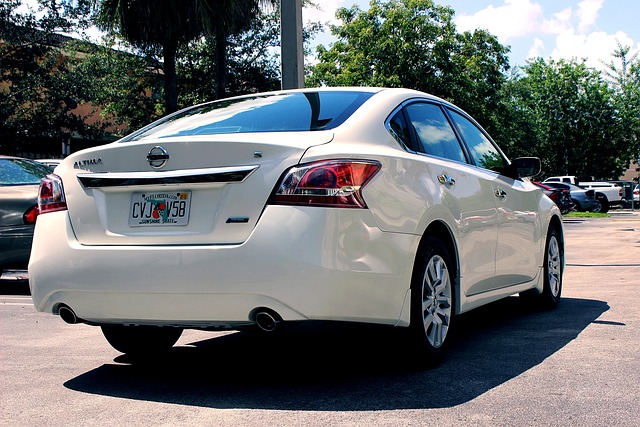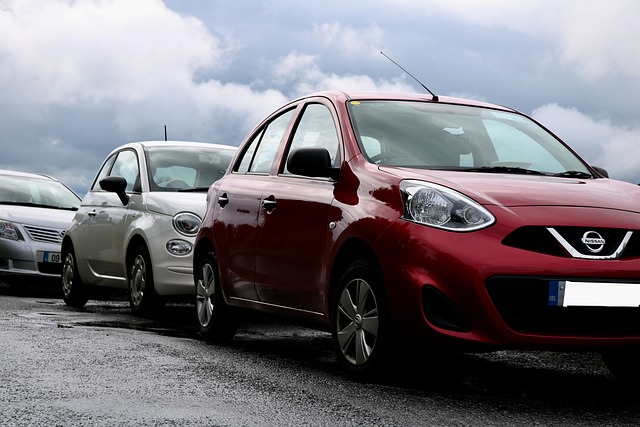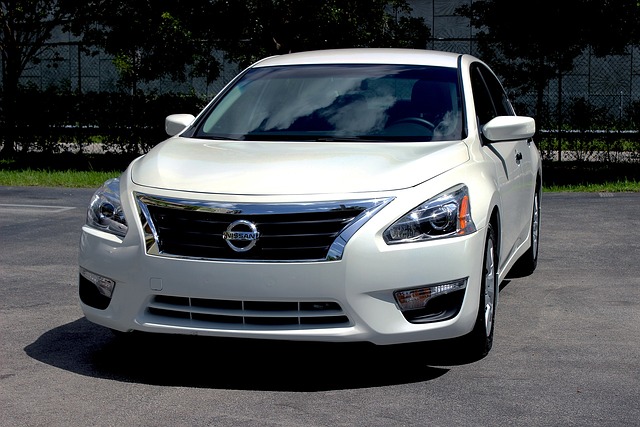When it comes to selecting an automobile, dependability, performance, and value are all important concerns. Understanding the best and worst years for Nissan automobiles may have a big impact on the long-term ownership experience. Let’s look at the highs and lows of Nissan’s manufacturing history to assist prospective purchasers make educated judgments.

Best years:
The 2009 Nissan Altima The 2009 Altima is renowned for its smooth ride, roomy cabin, and fuel economy, making it one of Nissan’s greatest models. With a new look, enhanced handling, and a hybrid option, it remains a popular choice among midsize sedan fans.
The 2014 Nissan Rogue wowed drivers with its premium interior, plenty of storage room, and good fuel efficiency. Its smooth ride and improved safety features make it an excellent pick in the small SUV sector.
The 2006 Nissan Maxima The 2006 Maxima, known for its strong V6 engine, dynamic driving, and luxurious interior, is one of Nissan’s top models. It provides a balance of performance and elegance, appealing to those looking for a dynamic driving experience.

Worst years:
While the Murano has a sleek look and a pleasant ride, the 2003 model year had dependability concerns, like as gearbox and engine problems. Buyers should be cautious while selecting this model year.
Despite its big cabin and off-road capabilities, the 2013 Nissan Pathfinder was criticized for its low fuel efficiency, inferior interior materials, and poor handling. Potential purchasers might look at several model years for a more enjoyable ownership experience.
The 2007 Nissan Sentra is known for its poor performance, uninspiring interior, and below-average dependability, putting it below its competition. Buyers looking for a small car should consider other alternatives in Nissan’s inventory.
Additional insights:

In addition to the highlighted best and worst years, it is essential to evaluate some elements that might affect the entire ownership experience of Nissan automobiles. This includes:
Maintenance and Care: Regardless of model year, regular maintenance and appropriate care are essential for extending the life of any vehicle. Regular maintenance procedures like as oil changes, tire rotations, and fluid checks may help avoid problems and assure peak performance.
user Feedback: Reading user evaluations and dependability ratings from credible sources may give useful insights into Nissan owners’ real-world experiences. Paying attention to prevalent complaints or recurrent concerns throughout model years will help potential purchasers make better judgments.
Technology and Features: Newer model years often include advances in technology, safety features, and convenience choices. While older versions may be less expensive, they may not have all of the features present in current ones. Buyers should balance their desires for technology and functionality with their economic limits.
AS AUTONOMOUS VEHICLES PROLIFERATE, HOW WILL AUTO REPAIR AND UPKEEP CHANGE?
Certified Pre-Owned Options: For customers interested in older Nissan models, looking into certified pre-owned (CPO) cars might provide additional piece of mind. CPO programs often feature comprehensive inspections, extended warranties, and other advantages, making them an appealing choice for purchasers looking for dependability and certainty.
Test Drive and examination: Before making a purchasing decision, you should test drive the car and perform a comprehensive examination. Pay attention to driving dynamics, comfort, interior quality, and general condition to ensure that the Nissan model you choose fulfills your expectations and needs.
Explore Nissan’s Evolution:
Understanding Nissan’s progress throughout time helps provide perspective to determining the best and worst model years. As one of the world’s leading manufacturers, Nissan has experienced considerable changes in design, engineering, and manufacturing processes, affecting car quality and performance.
Nissan has stressed innovation and technology integration in recent decades, resulting in improvements in fuel economy, safety features, and driver assistance systems throughout its product range. Newer model years often benefit from these innovations, providing better dependability, performance, and overall driving experience than previous incarnations.
Nissan has also increased its car lineup to satisfy shifting customer tastes and market needs. Nissan provides a varied selection of alternatives to appeal to various lifestyles and driving demands, including small cars and SUVs, electric vehicles (EVs), and trucks.
Regardless of these developments, it is important to recognize that no carmaker is immune to periodic setbacks or troubles with certain model years. Manufacturing problems, design flaws, and component failures may all have an influence on the dependability and reputation of a vehicle, independent of the brand’s overall track record.
Prospective purchasers should acquire confidence in Nissan’s capacity to offer dependable and pleasant automobiles by taking into account the company’s continual dedication to innovation, quality improvement programs, and customer feedback. Conducting extensive research, getting expert guidance, and testing different model years may assist consumers in making well-informed judgments and selecting Nissan automobiles that meet their expectations and preferences.

As Nissan continues to develop and enhance its cars, consumers can anticipate a sustained emphasis on quality, performance, and value across its portfolio. Whether you want a vintage model year or the newest innovations, Nissan has a wide choice of alternatives to fit your interests and driving inclinations. Read more
Frequently Asked Questions (FAQ) regarding Nissan Vehicles: Best and Worst Years
1. What variables influence the best and worst years for Nissan vehicles?
Nissan’s greatest and worst years are evaluated by a variety of characteristics, including dependability, performance, safety features, technical breakthroughs, and customer feedback. Model years with few reported troubles, increased features, and excellent reviews are often considered the greatest, whilst those with recurrent problems or substantial defects may be viewed as the worst.
2. How can I determine the best and worst years for a certain Nissan model?
Consumer evaluations, dependability ratings, and industry studies may help you determine the best and worst years for a certain Nissan model. Furthermore, visiting automobile forums, getting advice from experienced owners, and driving other model years may give useful insights about their performance and dependability.
3. Are there any Nissan models that are recognized for providing consistent quality throughout all model years?
While several Nissan models, such as the Nissan Altima and Nissan Rogue, have acquired reputations for dependability and consistent quality, it is critical to analyze each model year separately. Design modifications, technical improvements, and manufacturing procedures all have an impact on a vehicle’s overall quality and performance, even within the same model range.
4. What factors should I consider when acquiring a used Nissan vehicle from a certain model year?
When acquiring a used Nissan, evaluate the mileage, maintenance history, vehicle condition, and any known faults with the model year. Researching the vehicle’s VIN (Vehicle Identification Number) history, getting a pre-purchase check from a skilled technician, and reading maintenance records may all help you determine its general condition and dependability.
5. Are there any frequent faults or recalls related with certain Nissan model years?
Nissan, like other automakers, has issued recalls for certain model years owing to safety concerns, manufacturing flaws, or component failures. Checking the National Highway Traffic Safety Administration’s (NHTSA) website for open recalls and keeping up to date on frequent concerns reported by owners and automotive experts may assist discover possible problems with certain Nissan model years.
6. How can I assure a great ownership experience for a Nissan vehicle, regardless of model year?
To maintain a great ownership experience with a Nissan vehicle, regardless of model year, prioritize regular maintenance, adhere to prescribed service intervals, and handle any concerns quickly. Stay up to date on vehicle recalls and service bulletins, communicate openly with your dealership or service facility, and drive responsibly to extend the life and dependability of your Nissan car.
7. Can I anticipate improvements in newer Nissan vehicles over previous ones?
In general, newer Nissan models contain technological breakthroughs, safety features, and overall design improvements over earlier versions. Upgraded infotainment systems, greater driver-assistance capabilities, increased fuel economy, and revised driving dynamics are some of the potential enhancements. However, it is critical to investigate certain model years to determine the degree of these enhancements and how they may affect your driving experience.
8. How can I verify a Nissan car’s dependability for a given model year?
When determining a Nissan car’s dependability for a certain model year, elements such as historical performance statistics, customer ratings, and expert assessments are taken into account. Websites and magazines that specialize in automobile reliability ratings, such as Consumer Reports and J.D. Power, may give significant information on Nissan cars’ long-term dependability and quality. In addition, consulting owner forums and online groups may provide firsthand descriptions of owners’ experiences with various model years.
9. Are there any maintenance suggestions or typical concerns to be aware of while owning a Nissan vehicle?
Regular maintenance is essential for the durability and dependability of any vehicle, even Nissan models. Following the manufacturer’s suggested service plan for oil changes, fluid checks, tire rotations, and other basic maintenance jobs is critical. Additionally, being proactive in correcting common concerns such as brake wear, battery health, and suspension components may help avoid more serious problems in the future. Consult the owner’s handbook and get advice from professional technicians for helpful maintenance ideas unique to your Nissan model.
10. How can I calculate the resale value of a Nissan vehicle for a given model year?
Several variables impact a Nissan car’s resale value for a certain model year, including general condition, mileage, maintenance history, market demand, and depreciation rate. Websites such as Kelley Blue Book (KBB) and Edmunds provide tools and resources for estimating car resale value using a variety of factors. Additionally, maintaining updated about market trends and taking into account the popularity and reputation of the particular Nissan model may assist determine its resale potential.